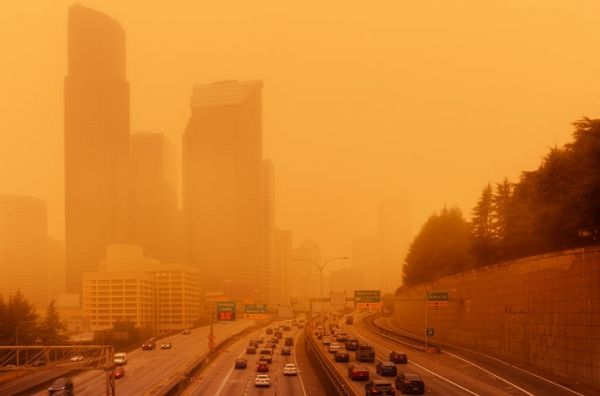Researchers in the University of Kentucky Department of Chemistry are studying how smoke from wildfires can affect public health — even hundreds of miles away from the source.
Associate professor Marcelo Guzman, along with graduate student Sohel Rana, say that molecules released from forest fires can become more water soluble, and likely toxic, over the two weeks that smoke is transported through the atmosphere. In addition to warming the atmosphere, these molecules can cause a host of respiratory issues in humans when inhaled.
“As the biomass in trees, bushes, grass and peat are burned, large quantities of smoke, soot and other pollutants are emitted to the atmosphere,” Guzman said. “The smoke can then rise several kilometers in altitude and spread across large continental regions, polluting the air of distant areas. For example, many residents in the states of California, Washington and Oregon have recently experienced the poor air quality of hazy smoke.”
Every year, thousands of hectares of land are engulfed by forest fires across the globe. So far in 2020, more than 2.6 million hectares in the western United States have been consumed by fires.
Continue reading at University of Kentucky.
Image via Getty Images Plus.


